
Dominion, Authority, and Power: Understanding Christ’s Victory Over Sin and Death
In "I Don't Get The Bible," Shawn and Delaney discuss sin, faith, Jesus' impact on sin's consequences, and aligning willpower with God for a closer relationship.

In "I Don't Get The Bible," Shawn and Delaney discuss sin, faith, Jesus' impact on sin's consequences, and aligning willpower with God for a closer relationship.

Shawn uses YouTube to connect with spiritual seekers, focusing on faith in God and critiquing traditional practices. He promotes Christian unity, God's adaptability, and spiritual growth.

Numbers 34-36 detail land distribution, Levites' 48 cities, cities of refuge, and laws on murder vs. manslaughter. Emphasizes justice, mercy, and spiritual teachings.

Shawn McCraney critiques Five Point Calvinism, proposing a dynamic Holy Spirit evolving post-Pentecost, challenging traditional views on predestination and God's nature.
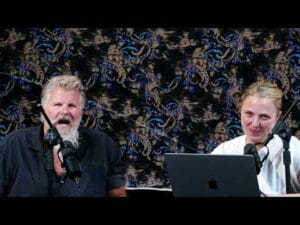
Delaney and Shawn challenge the belief that Adam introduced all death, suggesting physical death existed before the fall and discuss the confusion around physical resurrection.

Moses appointed Joshua, who consulted Eleazar via Urim and Thummim. Shawn teaches resurrection as spiritual reconciliation. Vows were binding unless opposed. God's actions are loving and just. Christ is the faith's foundation, tested by fire. Reuben and Gad's land request symbolizes spiritual growth. Trust in God's provision is emphasized.
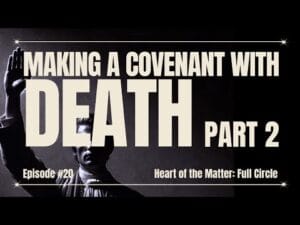
Yeshuans prioritize a direct relationship with Yeshua, reject intermediaries, and advocate for spiritual autonomy. They encourage former LDS members to focus on personal faith, avoiding negative affiliations and rigid doctrines.

In "I Don't Get The Bible," Shawn and Delaney McCraney discuss Christ as the first fruits of the dead, victory over death, and predestination for those in Christ.

The teaching discusses God's immutability, the Spirit's presence before Pentecost, and the shift in divine-human relations post-Christ, emphasizing spiritual empowerment and continuity.

Faith is personal, beyond organized religion, focusing on love and critical thinking. Critiques LDS Church's control, promotes freedom, and offers spiritual alternatives.
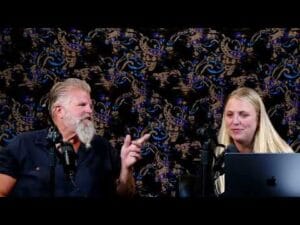
In "I Don't Get The Bible," Shawn and Delaney McCraney discuss 1 Corinthians 15, highlighting the importance of Christ's resurrection for faith, hope, and salvation.
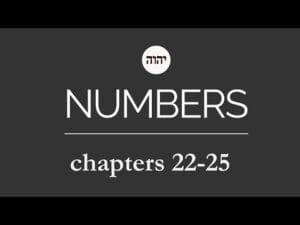
Balaam, a prophet with genuine prophetic abilities, is portrayed negatively due to his greed and misalignment with God's will, leading to Israel's betrayal. The teaching emphasizes discernment in spiritual matters, highlighting Balaam's failure to wait for God's conditions and the irony of his talking donkey seeing an angel. Despite being hired to curse Israel, Balaam blesses them, prophesying a Messianic future. The narrative warns against Balaam's deceitful influence and stresses the importance of aligning with God's will, as exemplified by Phinehas' zealous actions.

In this podcast, Shawn and Delaney McCraney explore hell, the Lake of Fire, and their biblical origins, interpretations, and relation to the New Jerusalem.

Delaney and Shawn discuss the importance of understanding the Bible's good news in Corinthians, noting its relevance then and the need for clarity to appreciate its significance today.

Shawn McCraney critiques LDS leadership, emphasizing faith in Yeshua over religious rituals. He advocates for direct divine connection, criticizing leaders' hypocrisy and self-exaltation.

In "I Don't Get The Bible," Shawn and Delaney McCraney discuss 1 Corinthians 14, spiritual gifts, love, women's silence in churches, and urge reading chapter 15.
Moses and Aaron barred from Promised Land due to disobedience. Aaron's death passes priestly role to Eleazar. Emphasizes faith over earthly rewards, idol rejection, and salvation through Yeshua.

In "I Don't Get The Bible," Delaney and Shawn discuss meaningful public prayer, edification, and prophecy's role in convicting sin, highlighting Shawn's teaching style.
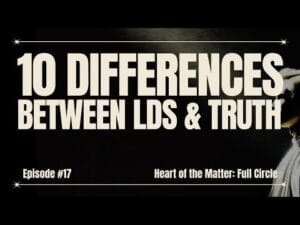
Shawn McCraney critiques Mormonism for diverging from biblical teachings, emphasizing intermediaries and laws over direct faith in God, leading to spiritual bondage rather than freedom.
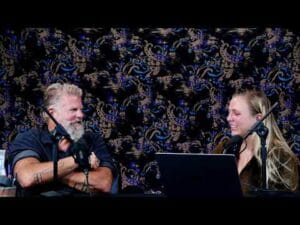
In "I Don't Get The Bible," Shawn and Delaney McCraney discuss spiritual gifts like prophecy, unity in faith, and praying in tongues for deeper spiritual connection.